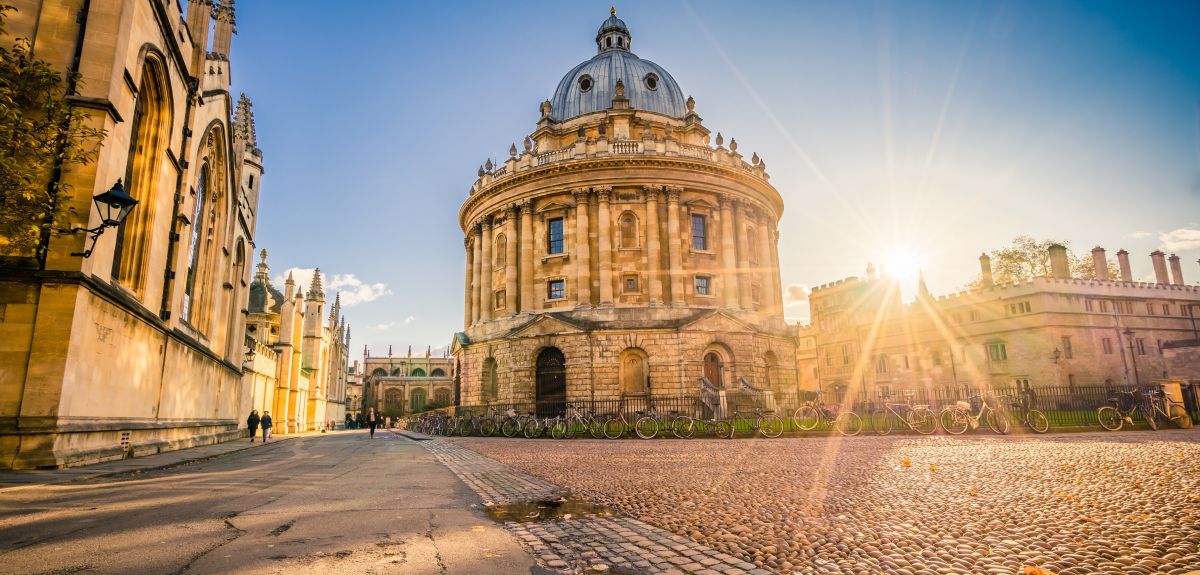
Four Oxford researchers win £100,000 Philip Leverhulme prizes
Four researchers from across the University of Oxford have today been awarded Philip Leverhulme prizes – the largest number awarded to researchers of any single UK university.
Awarded by the Leverhulme Trust, Philip Leverhulme Prizes recognise the achievement of outstanding research scholars whose future career is exceptionally promising, and whose work has made original and significant contributions to knowledge as well as shown sustained international impact.
Only 30 prizes are awarded throughout the UK each year and the four Oxford winners come from the three eligible divisions: Humanities; Mathematical, Physical and Life Sciences (MPLS); and Social Sciences. Each prize winner receives £100,000 which can be used for any purpose related to the advancement of their research.
The 2022 prize winners are:
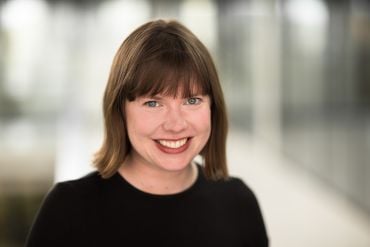 Professor Abi Adams-Prassl. Image credit: David Fisher
Professor Abi Adams-Prassl. Image credit: David Fisher
She says: ‘I am honoured and delighted to win the Philip Leverhulme Prize, but research is never a lone endeavour. I'm so grateful for the supportive research environment and culture at the Department of Economics and my brilliant co-authors. The prize will allow me to develop a new agenda uniting my research on gender inequality with that on flexible work arrangements and natural language processing of job advert text.’
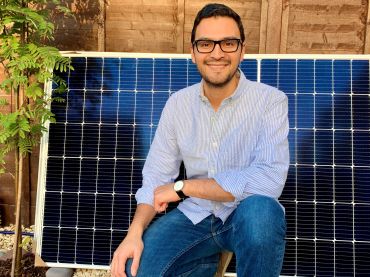 Associate Professor Sebastian Bonilla. Image credit: Dr Christina Heroven
Associate Professor Sebastian Bonilla. Image credit: Dr Christina HerovenHe says: ‘I am deeply honoured to have been selected by the Leverhulme Trust for this great recognition of my work and their vote of confidence in me. I am thrilled by the new and exciting avenues of science that this prize will allow me to explore. I am also hugely thankful for all the support I have received from my colleagues at Oxford Materials, the funding from the Royal Academy of Engineering and EPSRC, and the work and dedication of my team, without whom this would not have been possible.’
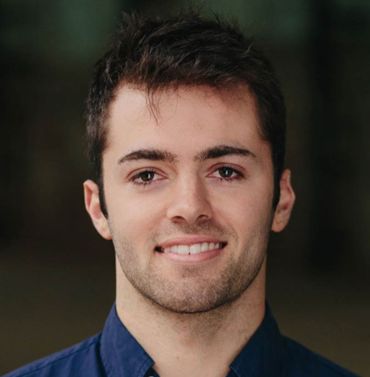 Associate Professor Harrison Steel. Image credit: Harrison Steel.
Associate Professor Harrison Steel. Image credit: Harrison Steel.He says: ‘I was personally very grateful for this award's recognition of our long-term efforts to develop new technologies and share them as open-source projects. Ensuring that science and engineering is widely accessible for a diversity of participants is a big challenge for the future, and so I appreciate this opportunity to shine a light on impactful work being done in this space.’
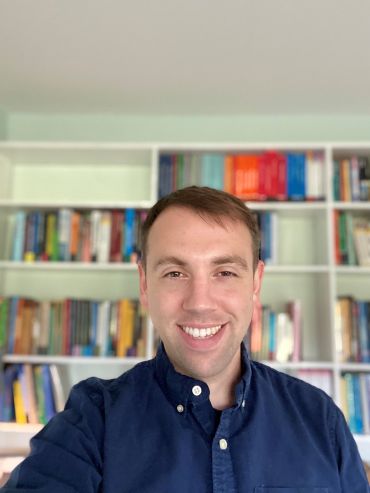 Professor Sam Wolfe. Image credit: Sam Wolfe
Professor Sam Wolfe. Image credit: Sam WolfeHe says: ‘This award will have a transformational impact on my research and allow me to dedicate my time to better understanding how and why languages change very quickly in some circumstances but remain very stable in others. The project will be challenging but I am very much looking forward to seeing the results and the impact on our understanding of linguistic variation and change. I am very grateful to be part of a University, two Faculties, and a College that allow me freedom to pursue research questions which interest me, even if we don’t yet know what results this will yield.’
Professor Sam Howison, Head of Division for Mathematical, Physical and Life Sciences (MPLS Division), says: ‘Many congratulations to the two MPLS researchers being honoured with the Philip Leverhulme Prize today: Sebastian Bonilla and Harrison Steel. This is wonderful recognition of the international impact and future potential of their research, and I look forward to seeing the fruits of their work as it develops.’
Professor Philomen Probert, Faculty Board Chair of the Faculty of Linguistics, Philology and Phonetics, says: ‘I am delighted to see Sam Wolfe honoured by the award of a Philip Leverhulme Prize. His work on syntactic stability as well as change is at the cutting edge of historical linguistics—a field which has traditionally been synonymous with the study of language change, but is now on the brink of the idea that stability can be as intriguing as change, and as worth trying to explain.’
Professor Heather Viles, Associate Head of the Social Sciences Division (Research) said: 'I'm thrilled to congratulate Professor Adams-Prassl on receipt of this prestigious award and such deserved recognition of her outstanding work. The field of labour economics is of critical importance - now more than ever - and Abi's extensive work in the field, and in applied microeconometrics, highlight the important role of the social sciences in tackling society's most urgent and complex challenges.'
Philip Leverhulme Prizes have been awarded annually since 2001 in commemoration of the contribution to the work of the Trust made by Philip Leverhulme, the Third Viscount Leverhulme and grandson of William Hesketh Lever, the founder of the Trust.
 Expert Comment: Chatbot-driven sexual abuse? The Grok case is just the tip of the iceberg
Expert Comment: Chatbot-driven sexual abuse? The Grok case is just the tip of the iceberg
 New study finds that stopping weight-loss drugs is linked to faster regain than ending diet programmes
New study finds that stopping weight-loss drugs is linked to faster regain than ending diet programmes